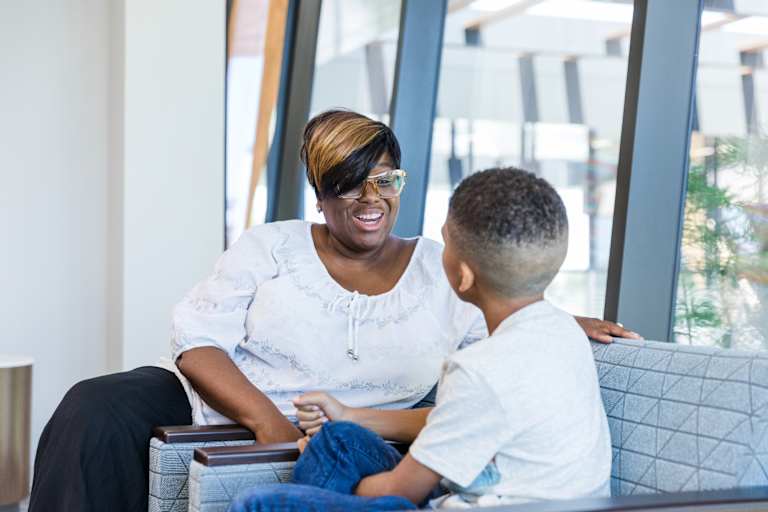Complete Guide to Earning a Child and Adolescent Psychology Degree
Child psychology is a specialized branch of psychological science concerned with the growth, behavior, and mental health of children and adolescents. It overlaps with developmental psychology, which studies the ways in which people change as they move through life.
The path to many child development careers begins with a child psychology degree, which colleges offer at both the undergraduate and graduate levels. This page outlines the most important things to know as you search for a program.
How to Choose a Child Psychology Program
To choose the right child psychology degree, you’ll need to consider a lot of competing factors. A systematic approach can make this process easier. Do a point-by-point comparison of the schools and programs you’re considering, starting with these factors:
Accreditation
First, confirm that the institution you’ll be attending holds valid, up-to-date accreditation. Double-check your research using resources from the Department of Education or the Council for Higher Education Accreditation.
Next, consider programmatic accreditation. If you want to become a licensed child psychologist, you must complete a program recognized by the American Psychological Association.
Graduation Rate
Graduation rates measure the percentage of cohorts who completed their degrees within a specific time frame (usually six years). The metric is a key indicator of program quality and student satisfaction.
Colleges typically make their institution-wide graduation rates easily accessible. If you’re unable to locate program-specific statistics, try contacting the school’s psychology department for more information.
Cost
The average tuition for a four-year program at a public, in-state school costs $9,596, according to the National Center for Education Statistics. Your program may cost more or less depending on whether you attend a public or private school as an in-state or out-of-state program. You can reduce your costs by:
- Studying at a public college as an in-state student
- Attending a public college in a neighboring state that has a tuition reciprocity agreement with your state
- Earning your child psychology degree online
Admission Requirements
Some schools have more inclusive admission policies, while others are more selective. Both approaches have advantages and drawbacks, and neither one necessarily indicates higher or lower academic quality.
Here, you should focus on comparing your qualifications against the requirements listed on the school’s child and adolescent psychology program page. Do you meet the indicated standards? If so, how well? If not, where are the gaps and do you have a path to closing them?
You can save costs by applying only to academic programs that match your student profile.
Financial Aid Packages
Published costs often tell only part of the story when it comes to institutional affordability. You’ll also need to investigate the financial aid programs available at each school.
Look at the types of aid packages the school offers, whether you qualify, and how much aid they deliver. Financial aid can reduce your out-of-pocket costs, sometimes by a wide margin.
Child Psychology Courses
The exact lineup of available child psychology courses varies among schools. If you have specific learning goals, perform thorough curriculum research to see how well each program on your list matches them.
If you’ve got additional academic interests, remember that you can double major in child psychology and another subject. Some schools also offer concentrated degrees in specialized areas, like school psychology, counseling psychology, or adolescent mental health.
These five sample course descriptions profile some common classes featured in child psychology degrees at the bachelor’s level:
Child Development
This course introduces historical and contemporary theories and models of child development. Coursework typically focuses on the early childhood years, spanning birth through about age eight.Adolescent Development
In this course, students examine typical and atypical courses of cognitive, emotional, and psychological development in adolescents. The scope typically extends from pre-adolescence to young adulthood.Educational Psychology
School is a near-universal experience for children and adolescents, and it has a profound impact on their development. In this course, students learn about the factors and individual differences affecting academic performance and educational outcomes.Research Methods
Child psychology degrees almost always feature required coursework in the methods used in psychological research. This course introduces and explores key standards.Child Psychology Capstone or Thesis
Bachelor’s degrees in child psychology typically lead to a capstone or thesis. Capstones are intensive projects that prompt you to apply everything you’ve learned in the program, while a thesis is an original, long-form work of academic research.
How Much Does a Master’s Degree in Child Development Cost?
A master’s in child psychology is a key stepping stone to advanced careers. As you plan your educational journey, you’ll likely want to prioritize costs since they may affect both your school choice and your post-graduation debt load.
The average cost of tuition and fees for graduate programs in 2021-22 was $20,513 per year, according to the National Center for Education Statistics.
Average Graduate School Costs at Public Institutions (2021-2022)
25th percentile
$9,292
50th percentile (median)
$11,766
75th percentile
$14,814
Typical Costs at Private Nonprofit Institutions (2021-2022)
25th percentile
$14,520
50th percentile (median)
$24,534
75th percentile
$45,684
Jobs With a Bachelor’s Degree in Child and Adolescent Psychology
A bachelor’s degree in child psychology leads most readily to entry-level opportunities with variable levels of advancement potential. The following list profiles some of the career paths commonly pursued by bachelor’s graduates. Some require additional training or credentialing, as noted in the accompanying descriptions.
Early Childhood Educator
You can combine a child psychology degree with a bachelor’s or master’s degree in education to qualify for multiple career paths in education. Specific options include:
Preschool Teacher
Preschool teachers lead early childhood education programs in daycare centers, public schools, and private institutions. According to Bureau of Labor Statistics (BLS) data from May 2023, preschool teachers earn a median salary of $37,130 per year and have projected job growth of 3% from 2022-32.
Kindergarten or Elementary School Teacher
Kindergarten and elementary school teachers work in public and private schools, leading classes as licensed educators. BLS data from May 2023 places their median salary at $63,670 per year, with 1% projected job growth from 2022-32.
Middle School Teacher Teacher
Middle school teachers lead classroom activities in grades 6-8. According to BLS data from May 2023, they have a median salary of $64,290 per year with 1% projected job growth over the next decade.
Assistant Behavioral Analyst
Behavioral analysts assistants work alongside licensed psychologists in performing assessments, diagnostics, and interventions in children and adolescents. Payscale data from May 2024 indicates an average pay rate of approximately $56,690 per year for board-certified assistant behavioral analysts.
Child or Adolescent Social Workers
Child and adolescent social workers advocate for young people who need external assistance dealing with difficult personal situations. They may work with children, their parents, and community members to address problems affecting the physical, psychological, or behavioral health of vulnerable young people.
You can combine a child psychology degree with a bachelor’s or master’s in social work to enter this career path. According to the BLS, social workers earn a median salary of $58,380 per year and have a 7% projected job growth from 2022-32.
Mental Health Program Specialist
These psychology professionals help plan, design, implement, and assess mental health services and programs for children and teens. They may work for school systems, government agencies, community organizations, or mental health clinics.
Payscale tracks average salary data for mental health program managers. As of May 2024, the average annual salary for these professionals was $64,640.
Family Services Specialist
Family services specialists can fulfill a variety of roles, depending on their employment setting. They may guide prospective parents through adoption processes, work in the foster care system, or assist teens and adolescents facing serious challenges that affect their family life.
Payscale data from May 2024 indicates that family services specialists earn an average salary of about $37,020 per year.
Is Child and Adolescent Psychology Right for Me?
While a bachelor’s or master’s in child psychology might sound appealing on the surface, there’s a lot to consider in determining whether either academic path is the right one.
On the one hand, you’ll likely find yourself in a position to make a difference in the lives of the children and teens you work with. Child psychology professionals often help their charges navigate situations in which they have no other support. This can be motivational and gratifying.
Qualities that may help you succeed include empathy and compassion, sound judgment, and a sharp eye for detail. The ability to deal with work-related emotional challenges and stress may also serve you well, depending on the career path you choose. Keep these considerations at the forefront of your mind as you assess your academic and professional options.
Frequently Asked Questions About Child and Adolescent Psychology Degrees
As with any academic program, it depends on your aptitudes, knowledge background, and motivations. In general, though, child psychology is not usually considered any harder or easier than any other college major.
Note: The insights on this page — excluding school descriptions — were reviewed by an independent third party compensated for their time by BestColleges. Page last reviewed May 30, 2024.
Explore More College Resources

How Do You Become a Child Life Specialist?
Are you interested in a fulfilling healthcare career? Learn about becoming a child life specialist and see how you can jumpstart this meaningful and growing career.

by James Mielke
Updated May 18, 2024



